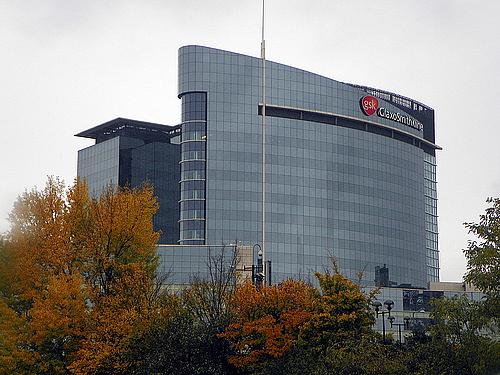Side Effects: GlaxoSmithKline to shut down doctor payments

It was fewer than 250 words but may have been the beginning of something massive.
In March 2013, GlaxoSmithKline, the largest drug company in Britain and one of the largest in the world, published a notice on its website:
In 2012 GSK made payments totalling £1.9M to 1517 UK-based healthcare professionals (HCPs) for providing advice and consultancy, including chairing and speaking at meetings, assistance with training and participation in advisory boards. Many UK-based HCPs are considered global experts and therefore these fees include payments made by GSK operating companies around the globe. This figure does not include payments to consultants in relation to research and development work, including the conduct of clinical trials. GSK ensures that any payment made to HCPs is reasonable, within market rates and reflects the time they spend speaking / advising. GSK also paid a total of £887,294 in sponsorship payments to support 1022 UK-based HCPs to attend scientific conferences and meetings in 2012. Sponsorship in this context includes registration fees, costs of accommodation and travel (both inside and outside the UK).
The move was the result of an agreement made by British pharmaceutical companies in 2011, organized by the Association of the British Pharmaceutical Industry (ABPI).
All GSK was required to disclose in Britain in 2013 -- and all it and other companies did disclose – was the lump sum of payments made to doctors as a group. But there’s another deadline looming. In 2016, GSK and other companies will be required to report payments made to individual doctors.
That’s already happening in the United States. GSK is one of the companies required by an agreement with the federal government to disclose payments to individual doctors. The good folks at ProPublica have gathered 19,251 payments from GSK to doctors in their Dollars for Docs database, and Charles Ornstein explained last week how GSK has been paying less and less to doctors in recent years.
In 2014, all companies will be forced to reveal these payments, under the new rules being rolled out with the Affordable Care Act.
After GSK’s March disclosure in the UK, Andrew Powrie-Smith, director of the British pharmaceutical association, told Sarah Boseley at the Guardian that, as she put it, “he did not think having to publish what the pharmaceutical industry spent on doctors would tend to make most companies less generous.”
Powrie-Smith said: "Industry in the UK is proud of its collaboration with health professionals. A fifth of the top 100 medicines in the UK have come from this collaboration. But there is increasing demand for transparency in the relationship. I don't see that it will have a particularly negative impact over their willingness to support medical education."
Powrie-Smith might have been mistaken.
GSK announced this week that it would phase out payments to its sales force based on the number of drugs they sell. And, in an even more surprising move, it said it would no longer pay doctors to talk about its drugs. The company said these payments would end by 2016, the same year all drug companies in Britain will be required to disclose individual payments to doctors.
Katie Thomas at The New York Times wrote:
The announcement appears to be a first for a major drug company — although others may be considering similar moves — and it comes at a particularly sensitive time for Glaxo. It is the subject of a bribery investigation in China, where authorities contend the company funneled illegal payments to doctors and government officials in an effort to lift drug sales.
Andrew Witty, Glaxo’s chief executive, said in a telephone interview Monday that its proposed changes were unrelated to the investigation in China, and were part of a yearslong effort “to try and make sure we stay in step with how the world is changing,” he said. “We keep asking ourselves, are there different ways, more effective ways of operating than perhaps the ways we as an industry have been operating over the last 30, 40 years?”
How much money are we talking about? Rupert Neate and Angela Monaghan at The Guardian wrote:
GSK refused to state how much money it pays doctors to promote its drugs, but a company source said it was in the region of "tens of millions of pounds a year".
In the UK, where drug firms are forced to declare such payments, GSK paid doctors £1.9m in speaking and advisory fees last year. … The company will also stop paying for doctors' flights, hotel bills and other expenses to attend conferences. Last year GSK paid out £900,000 in such expenses.
Will other companies follow suit? There’s a strong incentive not to, even with the pressure of disclosure. I’ll write more about that in future posts.
Image by Peter aka anemoneprojectors via Flickr

